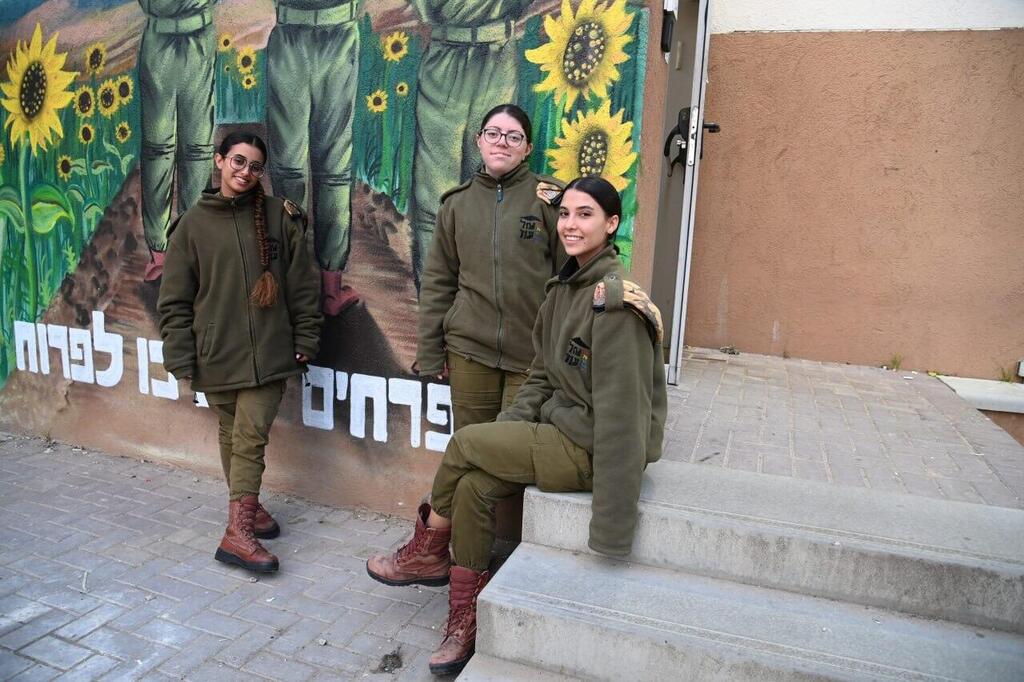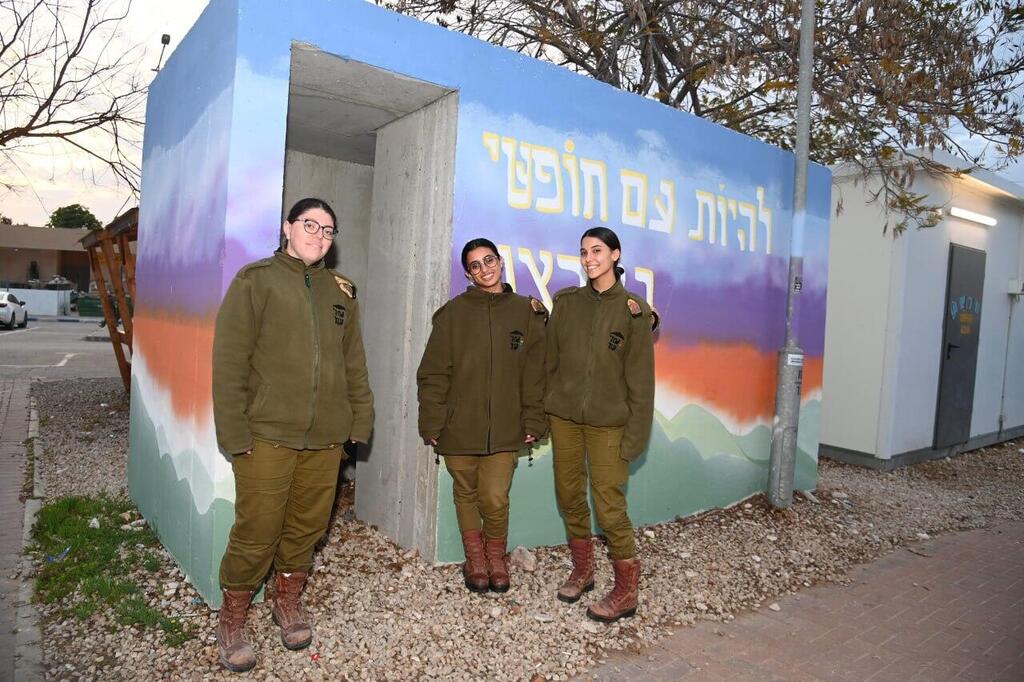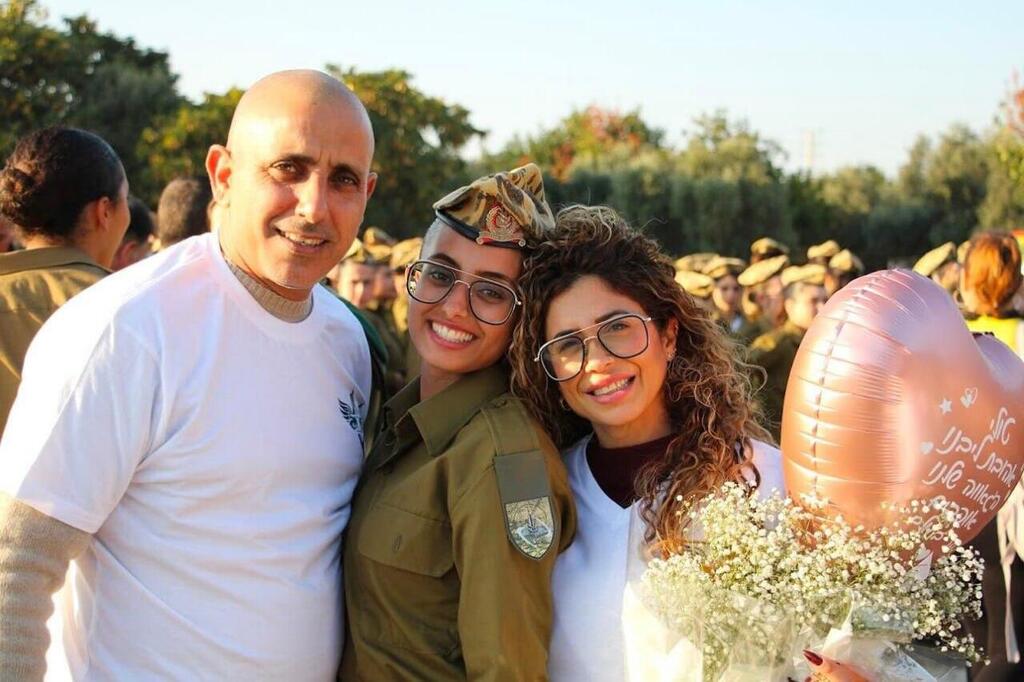"These are my girls!" declared Capt. Shahar Azran, 25, a lookout trainer in the Northern Brigade, as she viewed the first footage of Liri Albag and Naama Levy after their release from Hamas captivity.
Just two days before they were abducted from the Nahal Oz post on October 7, Azran awarded the pair, alongside Agam Berger, and the late Noa Marciano and Shirat Yam Amar, their course completion pins.
Even before the full situation was clear, Shahar—with six years of experience on the front—recognized its gravity and headed toward the division base. "It was hard, but I felt I was needed here, with my experience, knowledge, and support," she explained.
"The girls were coping with the loss of friends who had been killed or abducted. I, too, lost people along the way, including Capt. Shir Eilat, the operations room officer, and Col. Asaf Hamami, my brigade commander."
After the Nahal Oz operations room was moved to the Re’im base and the lookout trainees subsequently received personal weapons, what happened that morning continues to haunt everyone. "We deal with it every day, tending to them with the utmost care and consulting professionals," said Shahar. "We mainly remind the girls that we are here for them—we listen and embrace them."
The return of the five lookout trainees who had been held captive brought a sense of closure for Shahar. "I'm being discharged in three weeks, and I knew it would be very hard to be released knowing they were still captive," she said.
"When they returned, a weight was lifted from our hearts. Still, we didn't know in what condition they'd come back, and we were sensitive about the friends who remain in service. I told them it wasn’t easy for me either—being responsible for signing their training certificates and assigning them to the Nahal Oz base—leaving me wondering if I could have done something differently."
At the massacre at the Nahal Oz base, 15 lookout trainees were killed, and Marciano was abducted and murdered in Hamas captivity. "We continue the legacy of those we've lost in their spirit," said Shahar. "We commemorate their birthdays and share the stories of who they were. On the last Memorial Day, we embarked on a tour in the periphery, stopping at 16 sites—each dedicated to a fallen comrade. Alongside that, we choose to rise again."
In the new operations room at the Re’im base, Cpl. Maayan Monsongo, 19, and Sgt. Maayan Shimon, 20, sit absorbed in their screens, never taking their eyes off the front they oversee. Joining them is Pvt. Talia Ashram, 18, the niece of Shay Ashram, who was murdered in the operations room on October 7. That morning, Cpl. Shimon—who had been in training with Uri Megidish, Marciano, Hadar Cohen, and Mia Vialovo, who was at home reading frantic messages from her comrades—recalled, "I heard gunshots, there was an assault, they were at our post; I heard screams in Arabic."
Get the Ynetnews app on your smartphone: Google Play: https://bit.ly/4eJ37pE | Apple App Store: https://bit.ly/3ZL7iNv
The girls who didn’t observe the Sabbath set up their own makeshift operations room and tried to gather information about their friends—who was where, how each was faring, and what was occurring at the base, their second home.
"At first, my mind couldn’t process it; I refused to believe these were the girls I knew," said Shimon. Reflecting on the first shift after that Sabbath, amid news of friends being killed or abducted, she recalled, "We understood each other only through glances. We didn’t speak much—it was still hard to process. One moment we could be joyful, and the next, tearful. It’s hard to know that your friends performed their duty, even while reporting on terrorist infiltrations, and yet there were those who disrespected them."
Cpl. Monsongo, 19, from Jerusalem, joined the operations room a few days after the war broke out. "I was driven to come here. For me, it's an honor to continue the path of those who fought for us," she said. Having served in the original operations room near the Gaza Strip border, she added, "We saw the front with our own eyes, met the residents we defended. It profoundly influenced our role."
Sgt. Shimon also recalled the old operations room: "It used to be a cheerful, bright place. The photos after October 7—burnt and gray—are a far cry from how we remembered it." One cherished tradition was "tea time," a Friday meal that stretched throughout the day, culminating in the evening when the lookout trainees gathered around a table to sing songs about the operations room. "We stood out in the landscape," they described themselves. "It’s hard to miss us, in a good way."
The latest to join the operations room is Pvt. Talia Ashram, 18, from Rehovot, assigned after the loss of her cousin and close friend, Shay Ashram. Initially, when she received her assignment, she considered refusing, but when she realized the date coincided with the day Shay was taken for burial, she saw it as a sign. At the end of her course, she requested to serve in the same operations room where Shay had worked, and today she occupies her position, keeping watch over a front she knows better than anyone.
"It’s both moving and nerve-racking," she explains. "The role is not easy, but it carries a deep sense of mission and meaning. I waited for the moment when I could sit in Shay’s position and feel complete. Here, I feel she is with me, watching over me. I am here to stay, relying on myself and the army. They might break our hearts, but they cannot break who we are or the people of Israel—we are stronger than anything."





